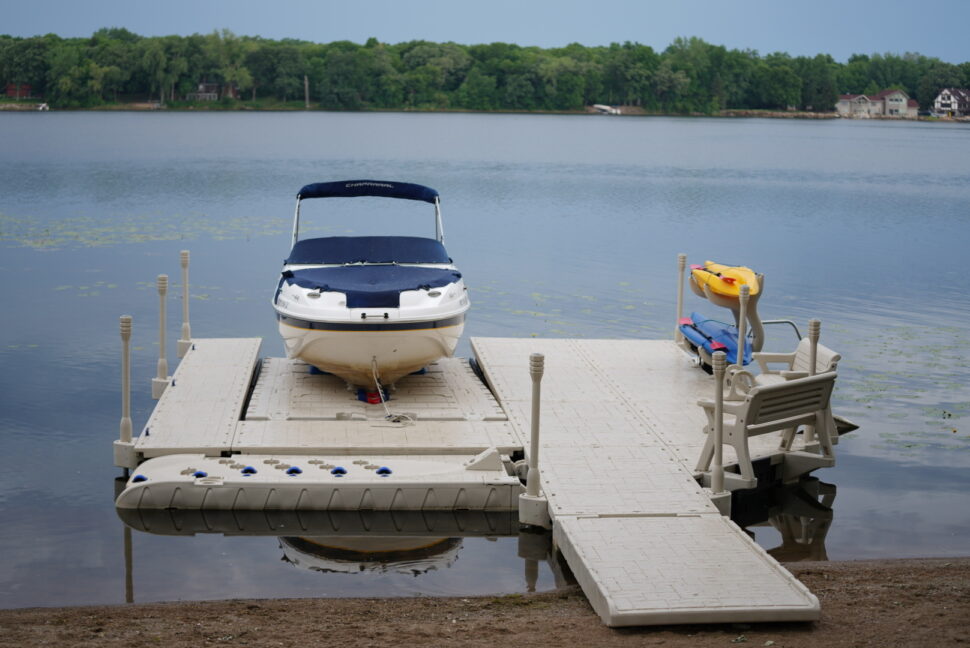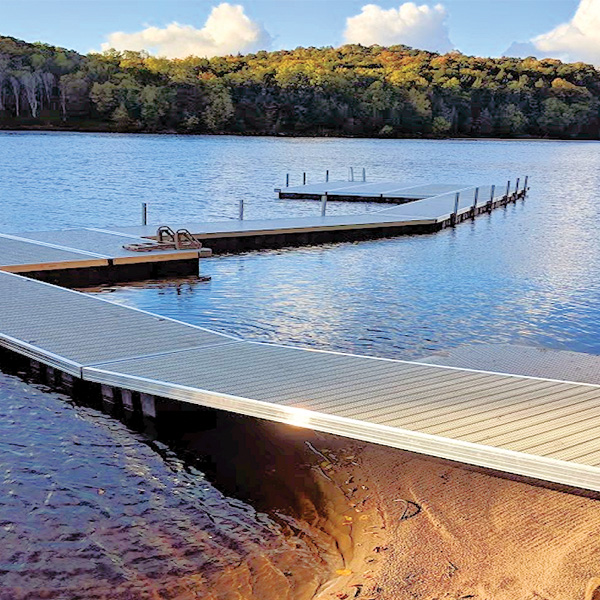Floating Docks: The Ideal Option for Versatile Water Accessibility
Floating docks existing an engaging solution for a variety of water gain access to requires, offering flexibility that goes beyond traditional mooring options. Their capability to adjust to ever-changing water levels while guaranteeing stability and safety and security makes them specifically advantageous for both recreational and industrial applications. The modular nature of floating docks promotes customization, catering to specific requirements. The subtleties of setup and upkeep, together with the variety of applications, require a closer evaluation to fully value their potential benefits and implications for river accessibility methods.
Benefits of Floating Docks
Floating docks offer various benefits that enhance water accessibility for different applications. Their ability to climb and drop with changing water degrees makes them especially beneficial in settings with rising and fall tides or seasonal variants. This versatility guarantees that vessels can conveniently anchor without concern for the water's deepness, offering a trusted system for recreational, business, and industrial uses.
In addition, floating docks are typically constructed from long lasting products that withstand corrosion, making them ideal for long-term usage in marine settings. Their installation is normally much less invasive than conventional set docks, reducing the environmental effect and promoting quicker deployment (floating dock services). This adaptability allows for simpler relocation or reconfiguration according to individual demands or ecological adjustments
Safety and security is an additional key benefit; floating docks can give secure accessibility for people getting off or boarding from watercrafts and lower the threat of mishaps connected with unpredictable surface areas. They can be developed to suit a range of accessories, such as fenders and cleats, boosting performance. In general, floating docks stand for an efficient solution for boosting water accessibility across diverse markets while advertising safety and ecological sustainability.

Kinds of Floating Docks
Different sorts of floating docks accommodate different demands and environments, each created with specific functions to maximize functionality. One of the most usual types consist of modular docks, which contain interlocking areas that enable easy personalization and development. These docks are optimal for entertainment use, as they can be tailored to fit different watercraft sizes and water conditions.
One more preferred alternative is the stationary floating dock, which stays secured in position but floats with altering water levels. dock company. This type is particularly fit for locations with very little tidal variations, giving stable access for fishing or swimming. In addition, there are drive-on docks, which feature a sloped style that permits watercrafts to conveniently drive on and off, making them suitable for personal watercraft and smaller vessels
For commercial applications, heavy-duty floating docks are available, constructed from reinforced products to withstand significant loads and harsh marine environments. Environmentally friendly floating docks use sustainable materials and layouts to reduce environmental effect, often incorporating attributes like plant life to sustain regional wildlife. Understanding the numerous kinds of floating docks makes certain that individuals can pick the most proper service for their details requirements.
Setup Process Review
An effective installation of floating docks calls read what he said for cautious planning and focus to detail to ensure ideal performance and safety and security. The preliminary action includes examining the website conditions, consisting of water depth, existing, and prospective barriers. This evaluation educates the choice of the ideal dock materials and layout tailored to the details atmosphere.
Following, obtaining essential permits is essential, as lots of territories have policies regarding building on water bodies. As soon as consents are safeguarded, the installation can proceed. Begin by preparing the structure, which might involve anchoring systems or pilings tailored to the dock kind and neighborhood conditions.
Complying with the structure setup, put together the dock areas according to supplier specifications. Guarantee that all parts are firmly fastened and lined up to stand up to ecological stresses. Position the dock in the assigned location, guaranteeing it is degree and secure.

Maintenance Tips and Best Practices
After the installation procedure is full, continuous maintenance plays a crucial duty in making sure the durability and functionality of floating docks. Routine evaluations should be performed to recognize any type of signs of damages, this post wear, or degeneration - floating dock services. Look for any loose installations, fractures, or separation in the dock areas, as these can compromise architectural integrity
Cleansing the dock is vital to eliminate debris, algae, and various other build-up that can influence its appearance and safety and security. Make use of a gentle pressure clean periodically to keep sanitation without causing damages to the surface. In addition, applying a safety sealer every few years can aid enhance durability and resist ecological wear.
Pay attention to the mooring lines and anchors, guaranteeing they are protected and cost-free from corrosion. Replace any kind of degraded elements without delay to avoid dangers. Seasonal adjustments might additionally be required; throughout severe weather, reinforcing the dock or repositioning can protect against damages.
Applications for Floating Docks
Floating docks offer a multitude of applications, satisfying both commercial and leisure requirements. In entertainment setups, they provide seamless access to waterways for tasks such as boating, angling, and swimming. Their flexible nature permits for installation in varying water levels, guaranteeing risk-free and secure accessibility regardless of tidal fluctuations.
Commercially, floating docks are essential for marinas and waterside services. They assist in the docking of vessels, making it possible for reliable filling and dumping of items. Their modular layout permits for very easy development or reconfiguration to suit transforming service needs, making them excellent for watercraft services, excursion procedures, or fishing charters.
Furthermore, floating docks are made use of in ecological applications such as water research study and habitat restoration. They can function as systems for clinical research studies, checking water top quality, or carrying out wildlife surveys without troubling delicate environments.
In industrial contexts, floating docks are utilized in construction projects, giving accessibility to hard-to-reach areas for tools and employees. Their flexibility, longevity, and very little effect on the environment make them an optimum option for a large range of applications, improving both functionality and access in different water-based environments.
Verdict
To conclude, floating docks represent an optimal service for diverse water accessibility needs, owing to their flexibility, toughness, and modular style. These frameworks assist in safe mooring for different applications while minimizing ecological impact throughout installation. The minimized upkeep demands better improve their usefulness. Floating docks serve as an important property for recreational, industrial, and ecological tasks, guaranteeing trustworthy accessibility to waterways and promoting lasting techniques in marine environments.
Floating docks present a compelling solution for a variety of water access needs, providing flexibility that transcends conventional mooring choices.Floating docks offer numerous benefits that boost water accessibility for numerous applications. On the whole, floating docks represent an efficient service for improving water access across varied fields while advertising security and environmental sustainability.
Another popular alternative is the fixed floating dock, which stays anchored in area yet drifts with altering water levels.In verdict, floating docks represent an optimal remedy for varied water access requires, click this owing to their flexibility, sturdiness, and modular design.